Today is a special day here at NPHub. Taking a cue from ongoing projects, like our Healthcare Heroes podcast, we decided to present a short interview with one of the most famous NPs right now.
She has appeared in Forbes, Insider, and other magazines, talking about her life as a travel nurse practitioner. Her name is Ebony Thyme, and she’s also a successful Instagram influencer.
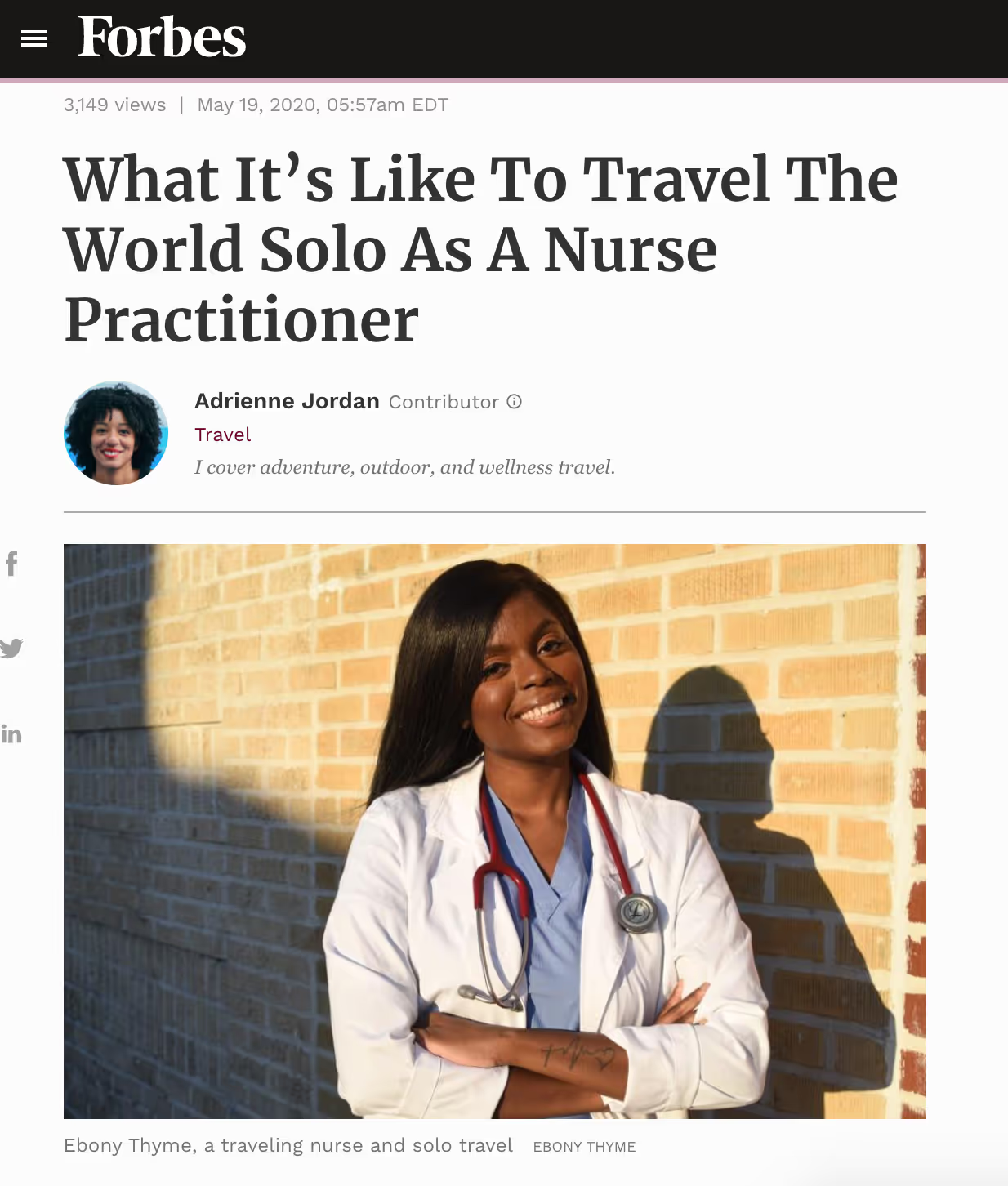

Many NP students in the United States have considered becoming travel nurses. This job gives them the opportunity to see the world (though not always), have flexible schedules, and earn good money.
Ebony has been kind enough to answer five questions about the job that might be very interesting for all NP students. Keep reading to check them out.
How do you balance traveling with being an NP? Can you share some techniques to stay focused and healthy while leading this lifestyle?
Unlike traditional NP roles, my job as an NP is very much different. I travel as an NP. Therefore, I pretty much can work when I want to throughout the year without worrying about PTO (Paid Time Off) time.
I graduated with a degree in family health, and the positions I usually pick-up are roles that are within family medicine, usually 3 months and ongoing contracts. Longer contracts equal more experience.
Taking time off for myself allows me to spend time with my family, stay in tune with myself and the things I like to do, put myself and my needs first. I usually work contracts that are convenient for me.
For example if I was to work a three 12-hour shift contract in urgent care, I try to do those shifts in a row. It allows me to have four other days to rest. I also do a lot of meal prepping for my shifts.
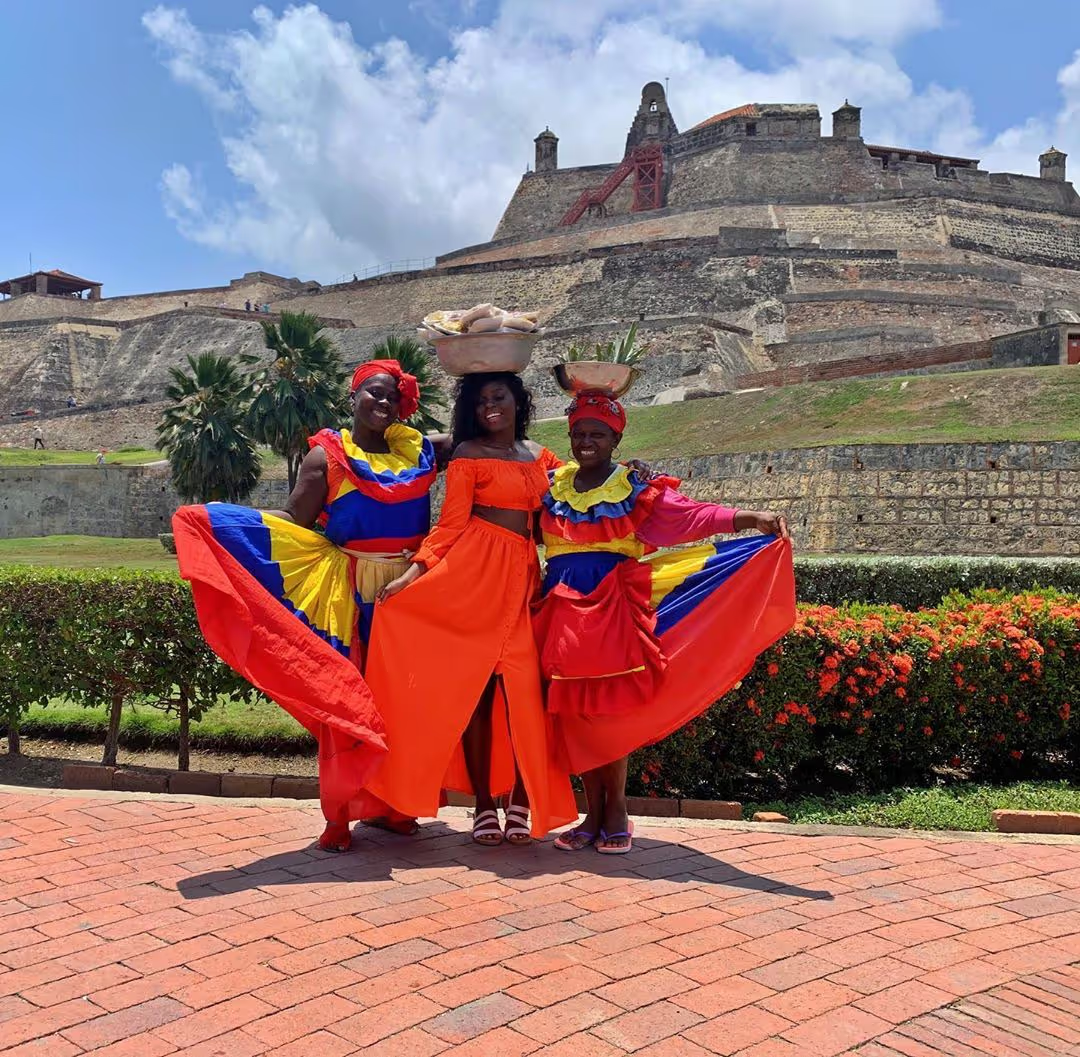
Can a recently graduated nurse practitioner become a travel nurse? What’s your opinion on that?
Typically, in order to be a travel nurse practitioner, it is recommended to have at least 6 months to a year of experience ahead of time. Luckily, I had 4 months of experience in urgent care prior to going into the role of a travel nurse practitioner.
I’ve heard, though, of new grads taking up on the role —usually on a longer contract. I do recommend some experience at the least. I would only recommend this lifestyle if you ask the right questions, and ask questions when you need help.
Stick with what you’re comfortable with: saying “yes” to everything does not get you the job. Your license comes first, if they are not willing to train you don’t do it! Work with other providers who are willing to help!
Did you have any special experiences with preceptors when you were studying to become a nurse practitioner? If so, please tell us about them!
Yes! While in NP school I had a few preceptors! Some were: A pediatric MD, an endocrinologist MD, and a primary care MD and NP.
For my specialty I decided to do a Psychiatry rotation with an NP. They were all amazing experiences. However, I felt like I could relate more to the NPs during my rotations, I’m guessing because of the way we practice as nurses.
Overall, all of my experiences have allowed me to see how things are outside of the textbooks. I feel like the real experience actually comes from practicing as a provider.
Any advice for NP students that are currently looking for preceptors or finishing their degrees?
My biggest advice is to stay focused. Procrastination can set you back big time. As far as board’s preparation, utilize all your resources.
I used Amelia Hoillers class and Leik for board preparation. I was also a part of many Facebook study groups for NPs. I was super focused but also made time for self care in between studying.
This goes for both board preparation and NP school.

What is the biggest lesson you’ve learned as a nurse practitioner?
The biggest lesson I’ve learned as an NP: I find that a lot of new grad NPs are worried about not knowing “everything.”
I am here to let you know that you will gain your experience mainly through your patient encounters and interactions. Not everything taught in nursing school is crystal clear. Your patient interactions will allow you to sharpen up your problem solving skills.
Clinical problems will eventually become repetitive, and prescribing and diagnosing will become second nature to you. It is okay to not know everything. Not every patient is the same, that is what makes our career unique.
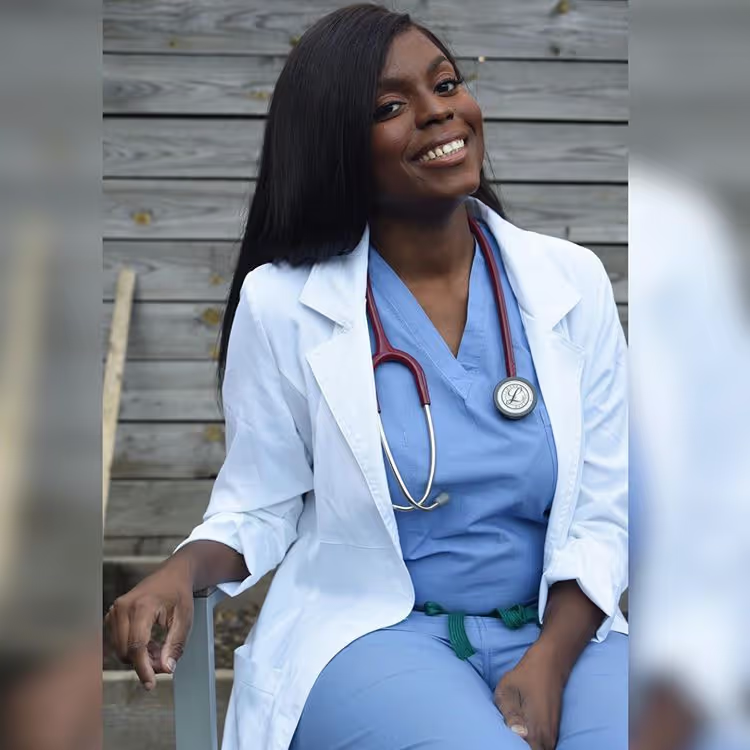
***
We’d like to thank Ebony for her candor, and for giving us the opportunity to pick her brain.
If you want to learn more about what she does, check out her solo traveling course, dedicated to empowering women to get confident about seeing the world on their own and becoming travel enthusiasts like her.
Follow her on Instagram @frontpage_eb
And for more interesting interviews, stories and content for NPs, follow NPHub on social media:
Facebook: https://www.facebook.com/NPHubOfficial/
Instagram: https://www.instagram.com/nphub_
Find a preceptor who cares with NPHub
Book a rotation.webp)








.webp)
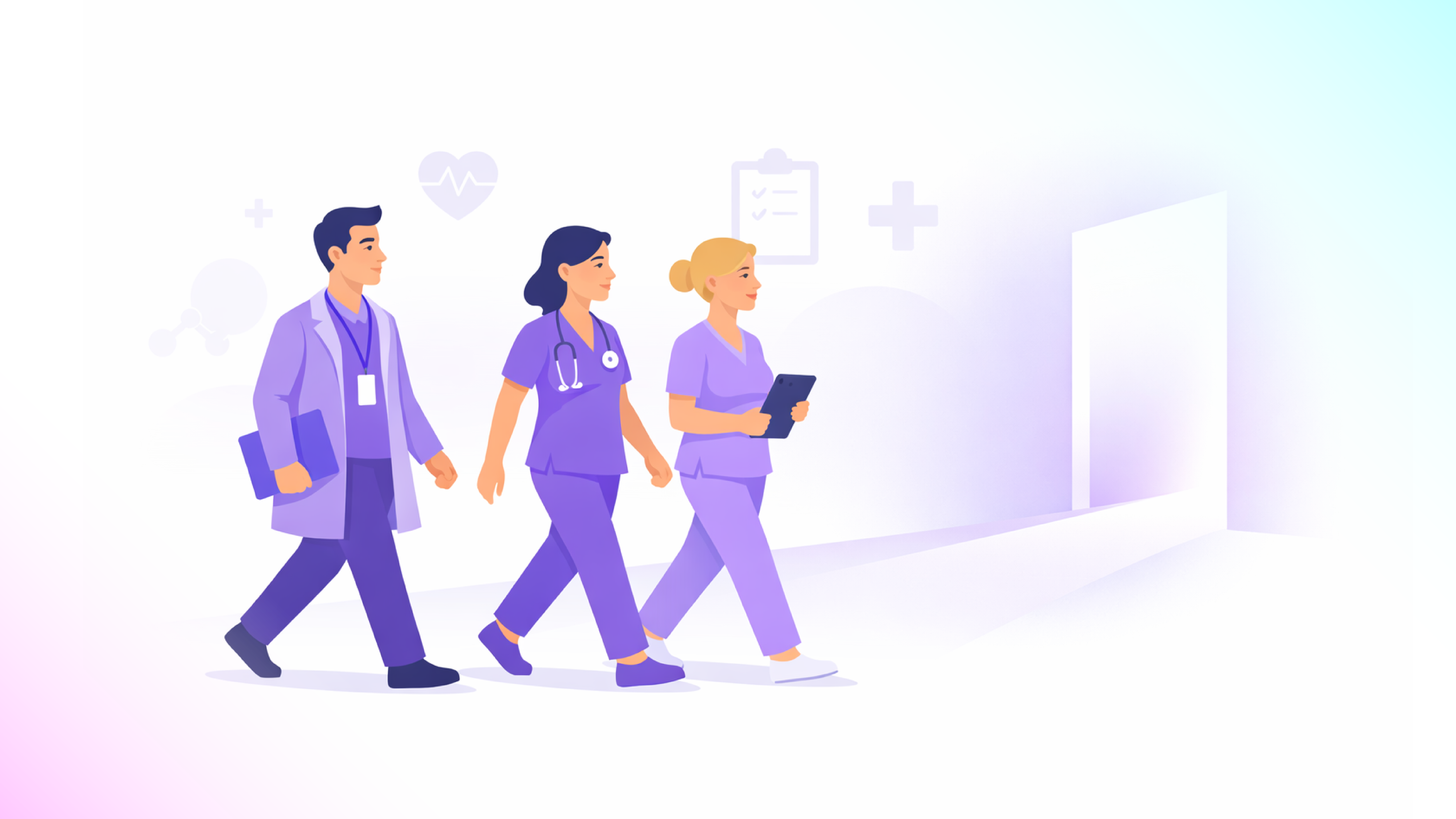

.webp)
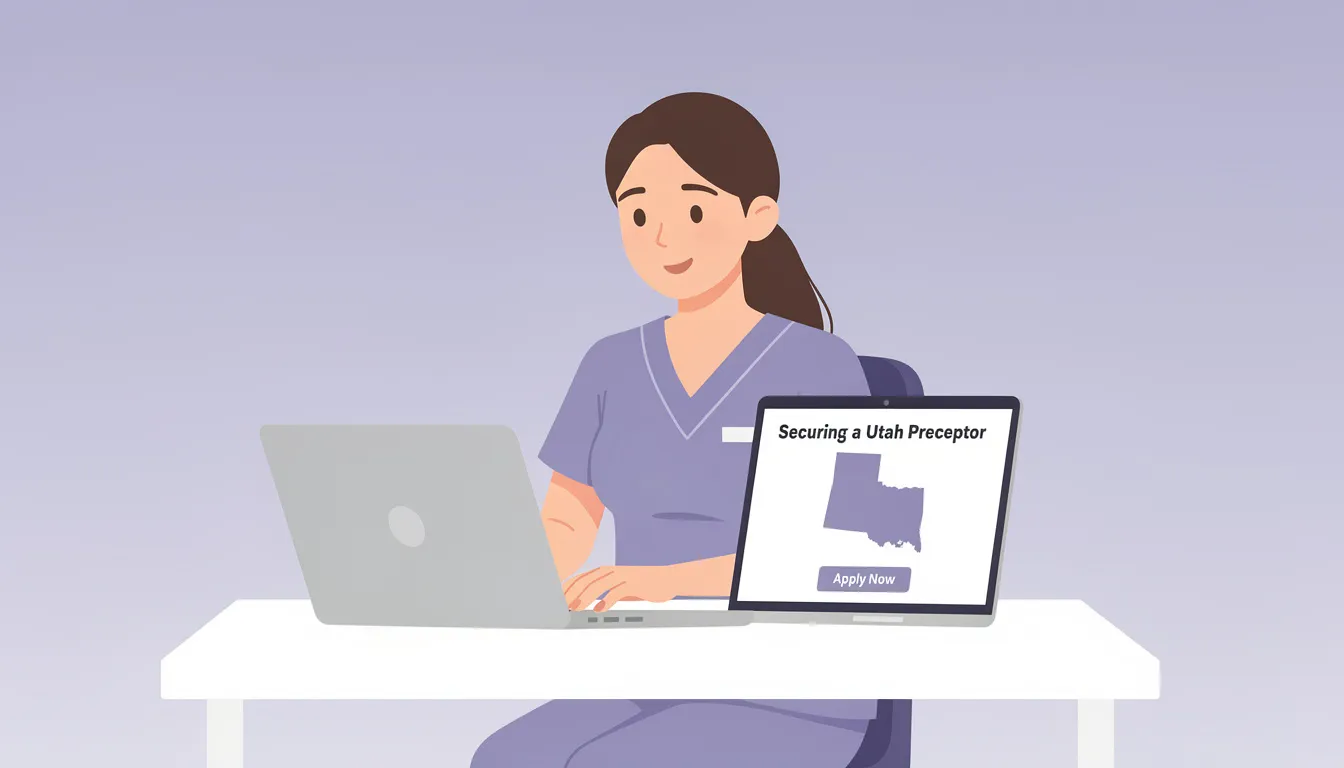
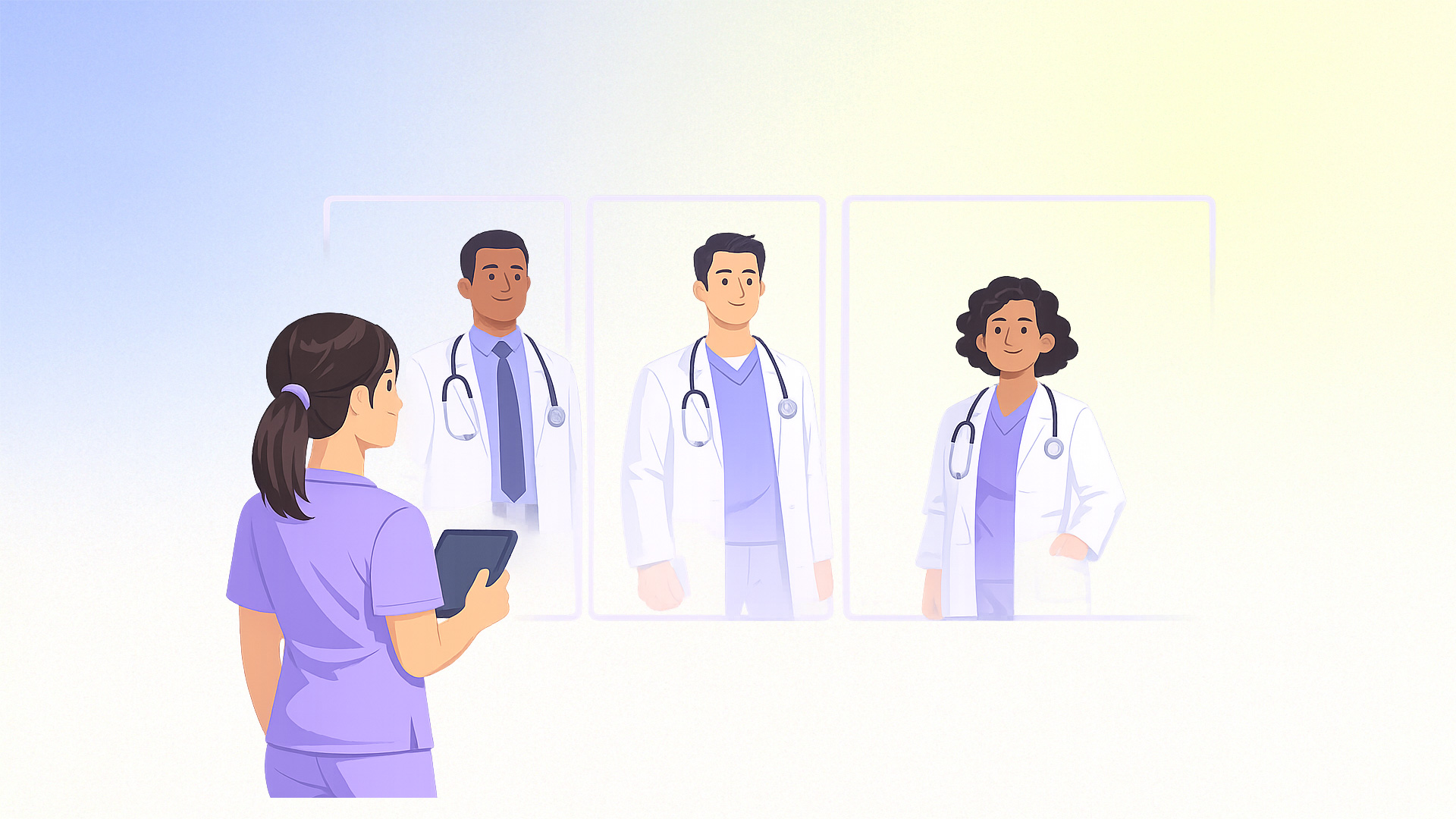

%20(3)%20(2).svg)
.webp)